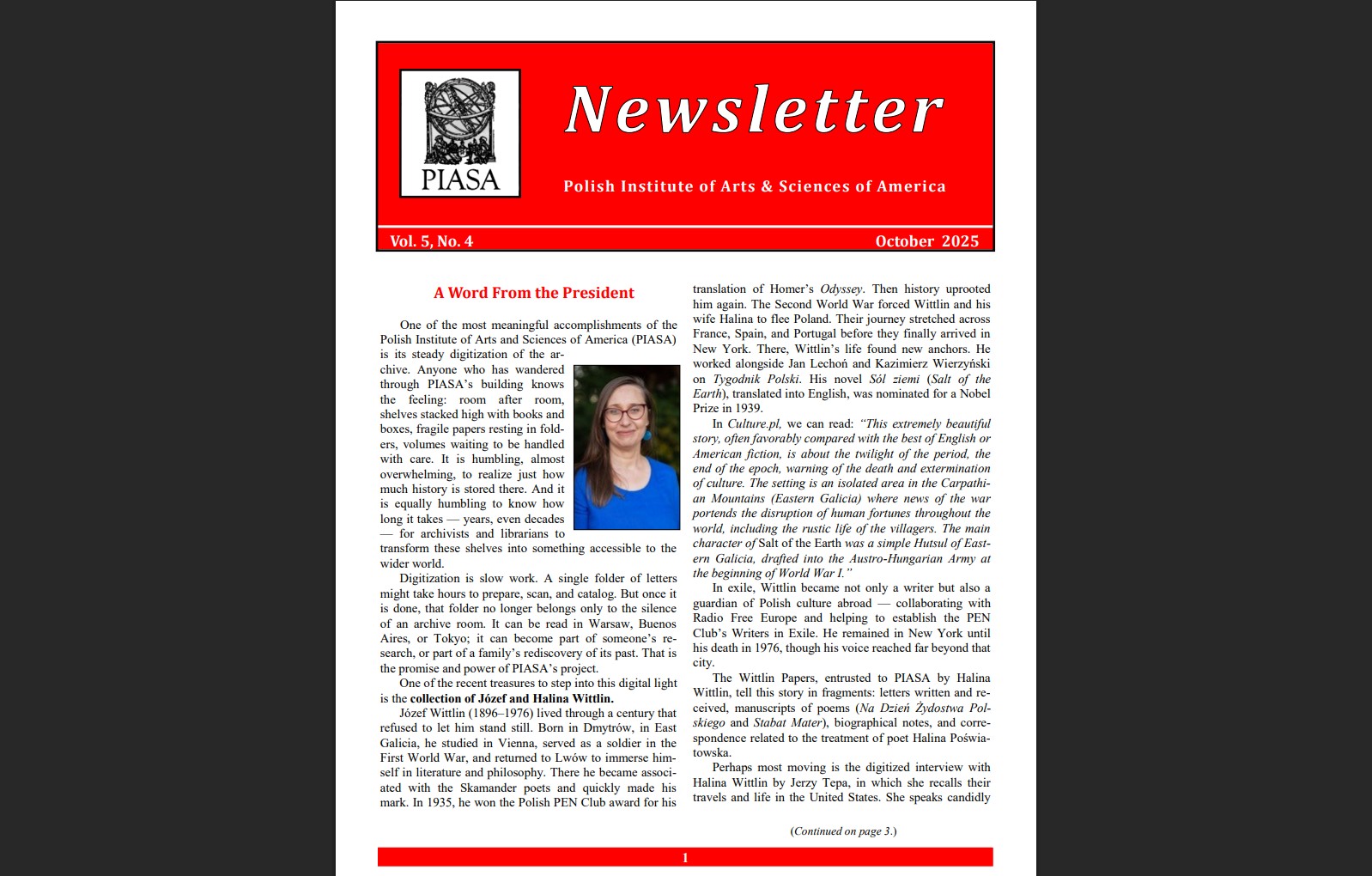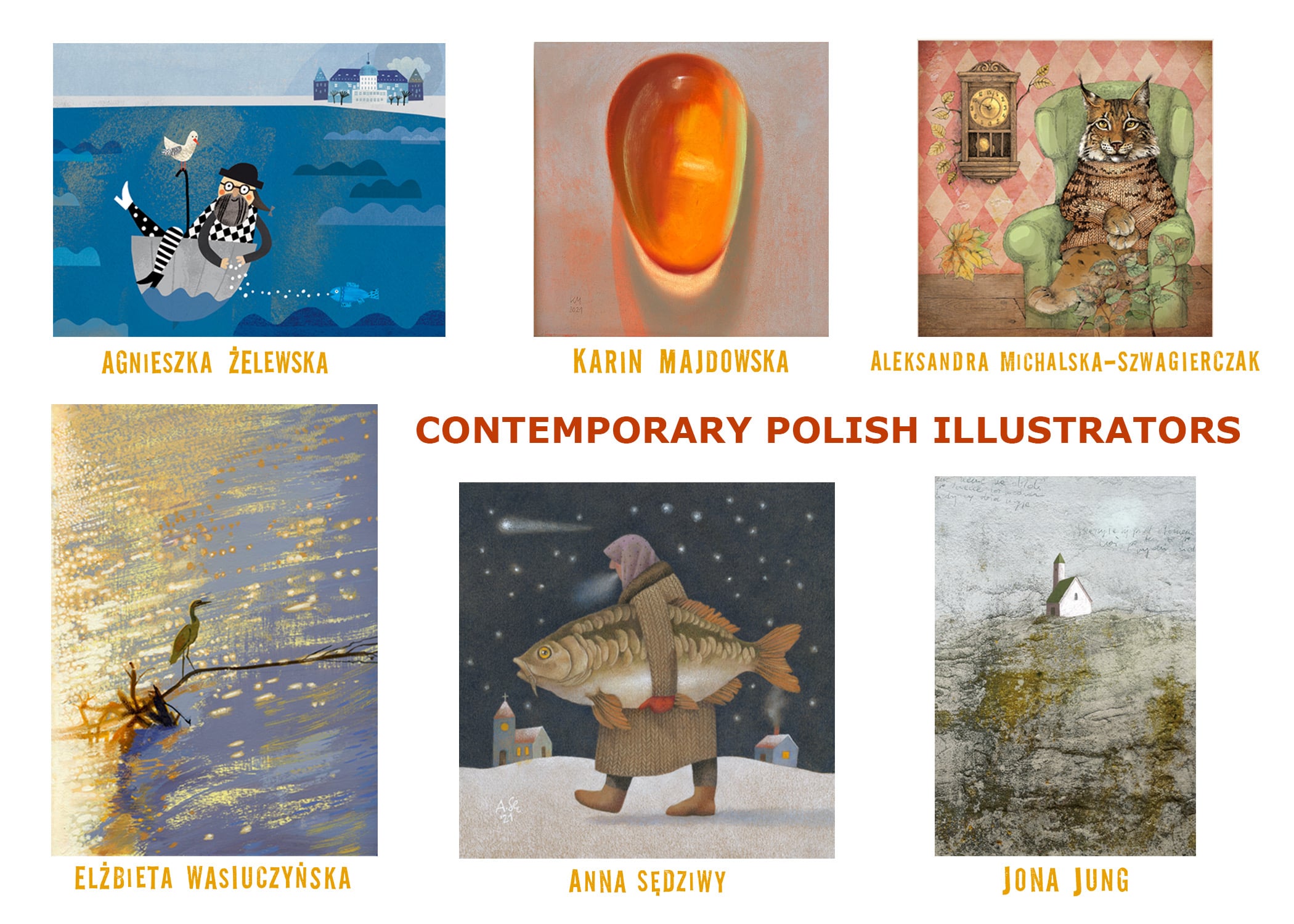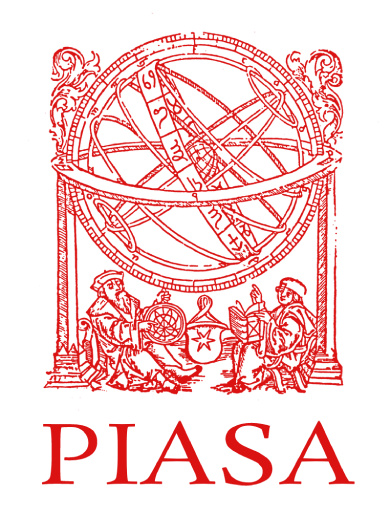Newsletter Vol. 4, No. 3 July 2024
A Word From the President
A Word From the President The 9th Polish Institute of Arts and Sciences of America’s World Congress has just concluded. This time we met at the Collegium Civitas in the Palace of Cul- ture in Warsaw under the patronage of the Minister of Science and Higher Education and with the presence of many important guests, including War- saw Mayor Rafał Trzaskowski. On Saturday, June 8, Robert Kostro host- ed our banquet at the Polish History Museum. With 54 panels and over 180 participants from 17 countries, the Congress was another testament to the dedication and hard work of all board members, especially outgoing PIASA president Robert Blobaum, executive director Bożena Leven, and program conference coordinator Patrice Dabrowski.
Let me then begin by saying a big thank you to all who participated in the Congress, but especially to Robert Blobaum, whose second term as PIASA’s president has just ended. Bob, under your unwavering leadership, PIASA organized one of its most successful Congresses. Thank you!
I am tremendously honored to be the next president of PIASA. I am grateful for the trust of the PIASA Board and for Bob’s guidance over the last year, which has helped me to prepare for this new role. Bob’s leadership over the last six years has transformed PIASA into a robust organi- zation with growing recognition worldwide. I am stepping into big shoes.
Growing up in Communist Poland, I could have never imagined that this honor—the opportunity to head a major Polish/Polish American organization—would be part of my experience as well. I was born and raised in Gdańsk, Poland. For the past 20 years, I have lived in the United States, moving from Indiana, through Florida, to Michi- 1 Polish Institute of Arts & Sciences of America Vol. 4, No. 3 July 2024 gan. I completed my Ph.D. dissertation in Eastern Europe- an history at Indiana University. In 2007, I moved back to Gdańsk, where I had the chance to work at the Second World War Museum. In 2011, I returned to the United States, first to work at the University of Florida in Gaines- ville, and then at the University of Michigan-Dearborn, where I am Frank and Mary Padzieski Endowed Professor in Polish/Polish American/Eastern European Studies. Be- fore becoming involved with PIASA, I served as the president of the Polish American Historical Association (PAHA) from 2018-2020. I am the author of If the Walls Could Speak: Inside a Women’s Prison in Communist Poland (Oxford University Press, 2018) and An Ordinary Life? The Journeys of Tonia Lechtman, 1918-1996 (Ohio University Press, 2022). Despite being firmly entrenched in American academia and my local De- troit community, I have always kept one foot in Poland, returning there on grants, participating in various projects and con- ferences, and publishing in Polish. I be- lieve not only in the importance of main- taining these contacts but also in building bridges for col- leagues and students from both continents to meet, share, and grow together. And I firmly believe that PIASA is be- coming one of the most important spaces for collaboration and recognition of people whose work is connected with Poland and/or American Polonia.
PIASA stands strong: It includes participants from many countries, continues attracting new people (including junior scholars from both Poland and the United States), contributes to academic discussions by organizing confer- ences and running The Polish Review. It is an important platform for recognizing the work of Polish scientists and scholars. It is inclusive, open, and forward-looking. As the incoming president, I am eager to continue building on this strong foundation.
― Anna Müller, PIASA President
Other News
2025 PIASA Award Recipients
•
February 11, 2026
Newsletter Vol. 6, No. 1 January 2026
•
December 30, 2025
CONTEMPORARY POLISH ILUSTATORS – Art Exhibition
•
November 12, 2025
Newsletter Vol. 5, No. 4 October 2025
•
September 26, 2025
Get Connected




